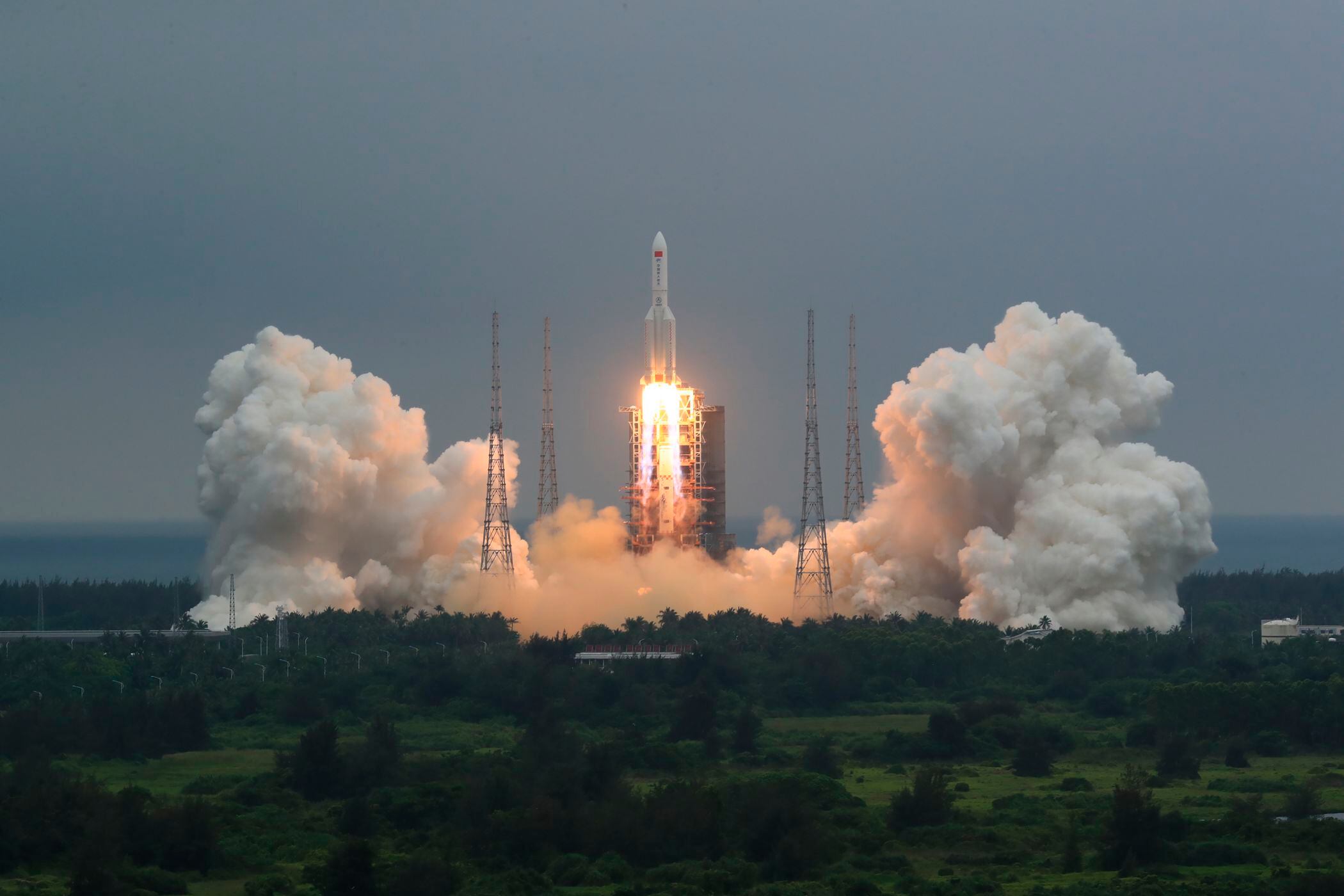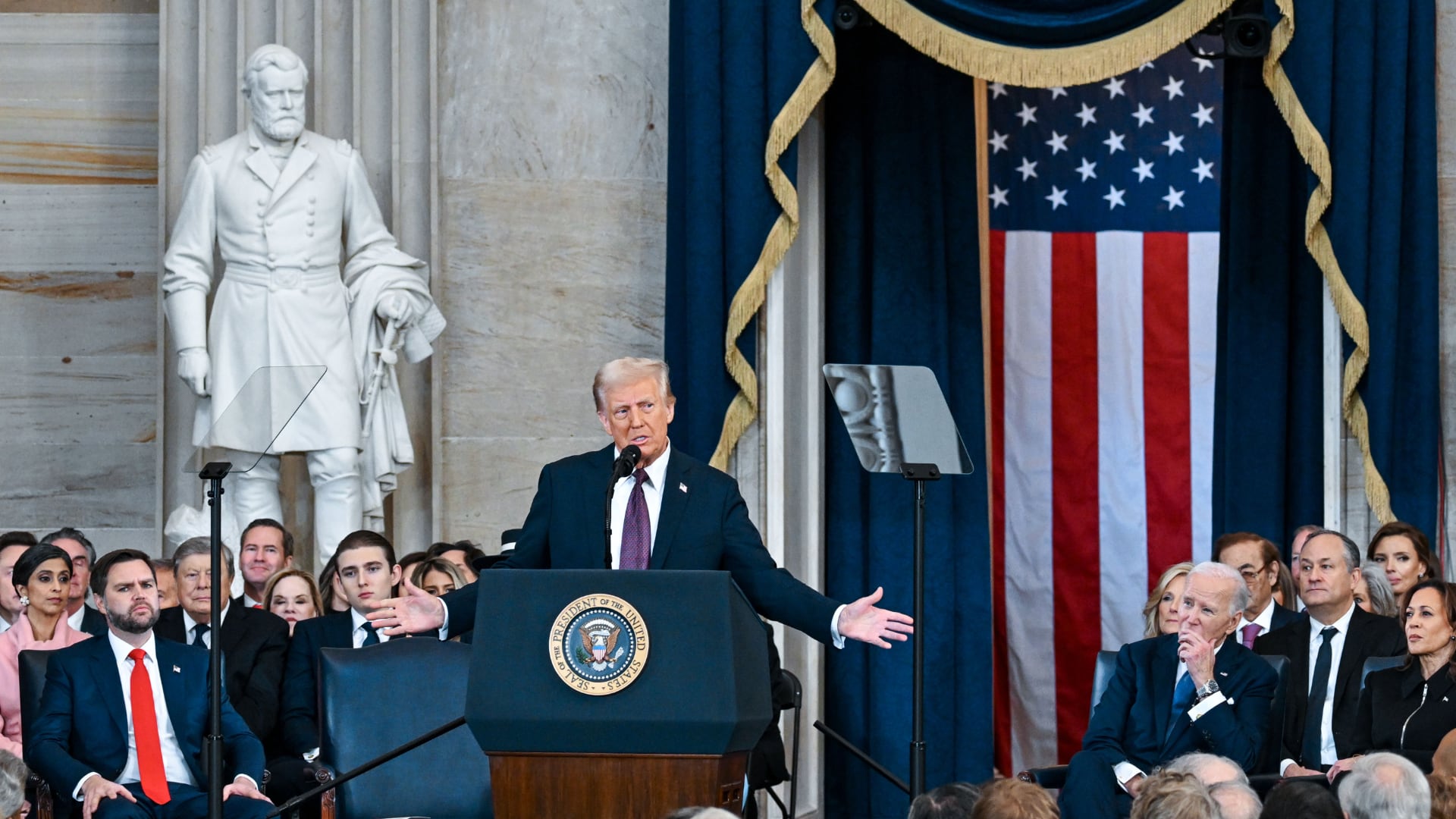By Sam McNeil
China on Thursday launched the main module of its first permanent space station that will host astronauts long term, the latest success for a program that has realized a number of its growing ambitions in recent years.
The Tianhe, or “Heavenly Harmony," module blasted into space atop a Long March 5B rocket from the Wenchang Launch Center on the southern island province of Hainan, marking another major advance for the country’s space exploration.
The launch begins the first of 11 missions necessary to complete, supply and crew the station by the end of next year.
China’s space program has also recently brought back the first new lunar samples in more than 40 years and expects to land a probe and rover on the surface of Mars later next month.
Minutes after the launch, the fairing opened to expose the Tianhe atop the core stage of the rocket, with the characters for “China Manned Space” emblazoned on its exterior. Soon after, it separated from the rocket, which will orbit for about a week before falling to Earth, and minutes after that, opened its solar arrays to provide a steady energy source.
The space program is a source of huge national pride, and Premier Li Keqiang and other top civilian and military leaders watched the launch live from the control center in Beijing. A message of congratulations from state leader and head of the ruling Communist Party Xi Jinping was also read to staff at the Wenchang Launch Center.













